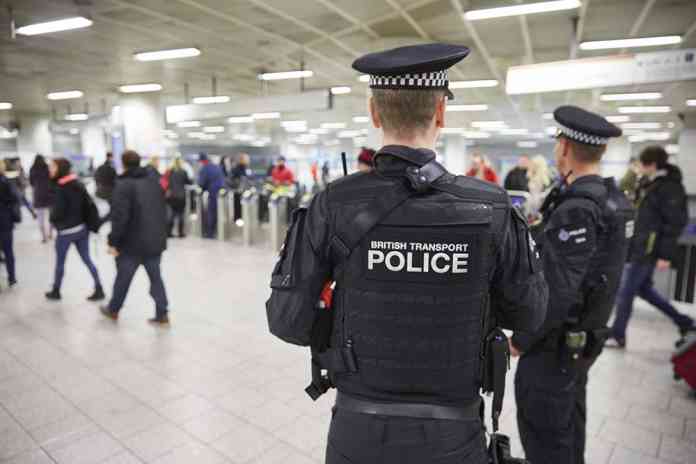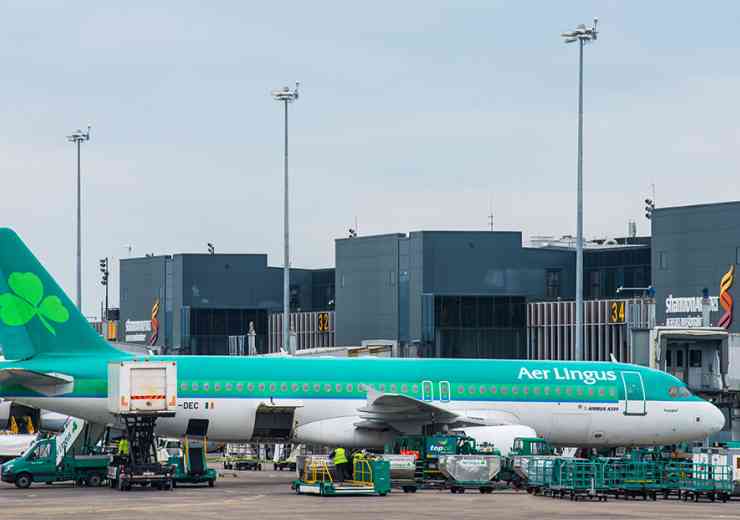
Terrorism and transport: disrupting and deterring
Project Servator
BTP officers continue to play an important role in Project Servator, an initiative that was initially set up by the City of London Police (in February 2014) and introduced by BTP in November 2015. Project Servator deployments are unpredictable and designed to be highly visible. Their aim is to make the rail network an uncomfortable place for criminals to operate, while simultaneously reassuring members of the public and rail staff. Operations use high-profile techniques such as officers in uniform and hi-vis clothing, in addition to search dogs and armed police. They are intended to appear unpredictable in terms of where and when they take place and can happen anywhere and at any time.
Deployments involve officers who are specially trained in identifying criminality. In particular, Project Servator officers will be looking for anyone who might be carrying out hostile reconnaissance or who may have other malicious intent. Hostile reconnaissance can be defined as the purposeful observation of people, places, vehicles and locations, with the intention of collecting information to inform the planning of a hostile act against a target.
Criminals, whether extreme protest groups, organised crime groups or terrorists, have to conduct hostile reconnaissance in order to plan a successful attack. Project Servator patrols aim to disrupt and deter them at an early stage, with the intention they will abandon their plans. Tactics such as these help to create an enhanced and strategic approach to protecting the critical national infrastructure and are part of BTP’s drive to deploy its resources more effectively.
Project Servator is a standardised and consistent approach across many UK Police Services to disrupt, detect and deter terrorism, and all crime types during the act and during the planning stages. This is achieved by completing unpredictable and highly visible deployments using an agreed engagement method.
BTP Specialist Operations Inspector Peter Day comments: “Project Servator is of great value to the railway network, because it involves officers engaging with local businesses, train operating companies, station staff and the travelling community, encouraging the reporting of suspicious activity through clear and simple methods, such as texting or contacting local Neighbourhood Policing Teams. As a national police service, BTP is continually forging new joint working with other Project Servator police services, completing joint deployments. In so doing we are disrupting, detecting and deterring terrorism and all crime types across the UK.”
The use of specially trained officers, such as BDOs, has proved to be highly effective in detecting criminals and those with criminal intent. Project Servator operations also increase the opportunity for interactions between police officers and the public, providing further reassurance to people and helping to deter and detect other criminal perpetrators.
By interacting with rail staff and businesses at railway stations, BTP is also helping to develop a culture of vigilance; raising awareness among rail staff and the travelling public of how to report suspicious activity. This combines with highly visible communications tactics, including adverts on digital screens, audio announcements, social media posts and media and online coverage.
Messaging is also consistent across all police services, to ensure the brand is instantly recognisable as Project Servator. In addition, surveillance is provided via a network of CCTV cameras, with officers working with operators to identify criminals and suspicious behaviour.
While London has seen the majority of Project Servator, operations, they have also been staged in Manchester and Birmingham, in addition to Wales and Scotland.
















